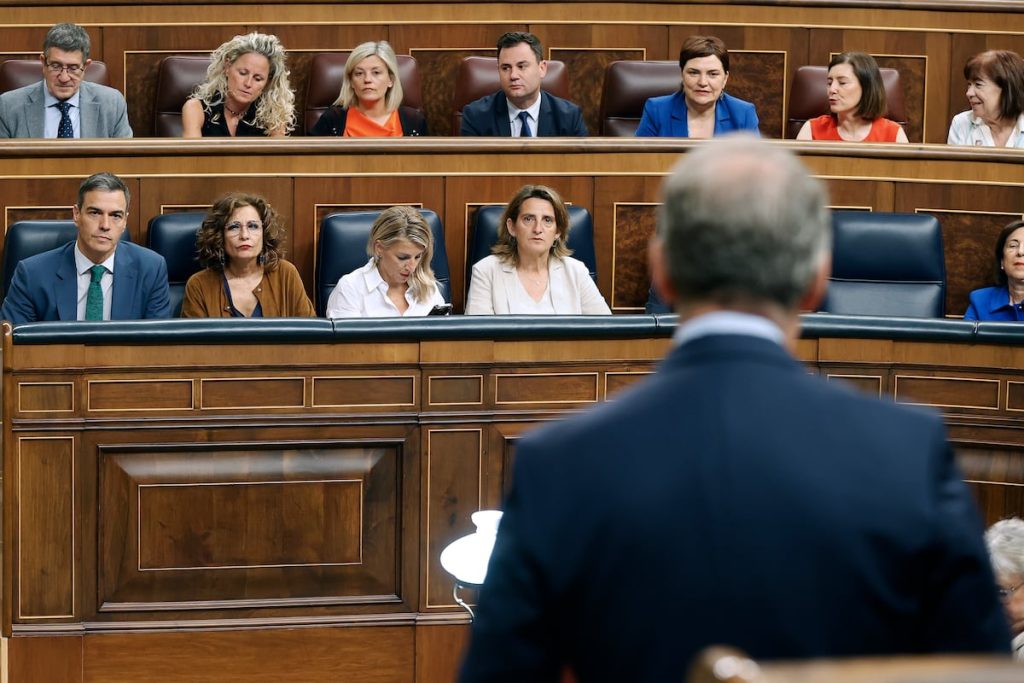It has been an intense week with many underlying movements in Spanish politics, although it remains to be seen if they will consolidate. The decision of the PP to focus on social policies such as reconciliation and housing, leaving aside accusations of totalitarianism towards the government, has excited the moderate sector of the party but also angered the more hardline members. The coalition, especially Sumar, is also content as they can now focus on policies and compare them with those of the PP. However, there is skepticism within the Government about the PP’s change in strategy, with some believing it is due to the Begoña case likely being dismissed, leading to the party preparing for a long legislature.
Within the Executive, there is a sense of satisfaction among ministers from Sumar as they are able to focus on policies and mark differences with the socialists, particularly on issues such as sick leave and housing. The decision by Feijóo’s team to concentrate on issues that matter to the people and build an alternative strategy has been welcomed. The upcoming week will be important, with the focus on a congressional session on immigration forced by the PP. The government is preparing a speech filled with data to counteract misinformation surrounding immigration, emphasizing the positive impact of immigration on the economy and society.
President Sánchez will present data showing that immigration is not only necessary but also beneficial, contributing to economic growth. He will also address challenges such as the situation in the Canary Islands due to the increased arrival of migrants, and the need for integration in specific areas. The government is concerned about the rise of xenophobic discourse in Spain, which has disrupted other European democracies and elevated far-right parties. However, Sánchez is determined to win the ideological battle, supported by compelling data favoring immigration and stressing the importance of border control and international cooperation.
The political focus has shifted to data and policy rather than controversial issues such as amnesty, as seen in recent discussions on housing and reconciliation. The government is prepared to showcase its achievements in comparison to the opposition, demonstrating their commitment to these key issues. The ongoing discussions between the PP barons and the government signal a potential long-term legislature, with meetings being held in a positive atmosphere. The return to politics seems to be well-received by most parties involved, despite differences in certain areas such as financing agreements with ERC.
Overall, the political landscape in Spain is evolving, with parties adjusting their strategies to prioritize policies and address key issues. The shift towards a focus on governance and data-driven discussions suggests a more constructive and substantive approach to governance. As debates on immigration and other important topics continue, the government remains committed to presenting evidence-based arguments and engaging in dialogue with opposition parties. The upcoming discussions and dynamics within the political sphere will likely shape the trajectory of Spanish politics in the coming months.


